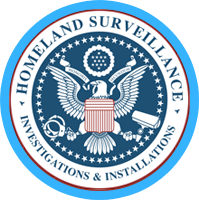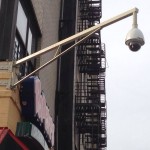VIDEO SURVEILLANCE- What You Need To Know!
For real estate owners and property managers Video Surveillance is essential. Video surveillance can alert you to potential problems, document incidents on your properties as they happen, check your properties live long-distance and help you stop criminal behavior. This sounds great but unfortunately many video surveillance systems FAIL to meet the expectations of their owners. We do a lot of business upgrading video surveillance systems that were never right for the properties that they were installed in.
Eight Requirements for Good Video Surveillance:
1. Reliability, what happens if the power goes out? Does the system have a power backup supply and for how long? Is the system vulnerable to computer viruses? Is the System Windows based, Linux operating or self contained to avoid virus threats? We recommend self contained systems with backup power supply.
2. System Monitoring and Diagnosis, does your video surveillance system alert you to problems with cameras or recording? We recommend specific monitors and recorders with health monitoring features within to ensure control from identifying problems.
3. Analog or IP Digital Cameras, the best cameras for picture quality are IP Digital Cameras. These cameras are much more costly than analog cameras. The difference in picture quality is that IP digital cameras record at a much higher resolution than analog cameras. Many banks have been switching to IP digital cameras for the better resolution. IP digital cameras also require a high performance recording system, added storage capacity and processing power. We believe that the key is to look at your facility and its needs and see both cameras before purchasing. You need to plan and design the video surveillance system before you start installing cameras. Many property managers like high end analog cameras for the exterior and lobby of the buildings with vandal hardened analog cameras on each floor and in the elevators. Airports, banks, parking lots and large high rise office buildings are good candidates for IP digital cameras.
4. Product Protection, many new surveillance manufacturers are entering the industry and it’s important to have a system where the vendor(s) have a commitment to backward compatibility. We see many properties with discarded video systems because of no product compatibility.
5. Wireless or Wired Cameras, wireless cameras can work for a small apartment to provide an adequate picture but the network and picture can have issues at times. For businesses, commercial properties and larger homes a more complex solution is needed which requires cabling from cameras to DVR through low voltage lines. This provides your properties its own closed circuit television cameras (CCTV) system that you control.
6. Recording Capabilities, what is the amount of footage to record and archive? Can you set your system for motion detection only? What kind of video quality do you need? Based on your answers we can determine the level of hard drive you need. For a 16 channel recorder you could have up to 6 Terabyte Capacity (1 terabyte equals 1,000 Giga Bytes). Remember cameras that work on motion detection will save you tons of footage.
7. Camera Site Installations, the number of cameras you need and the exact place setting is going to depend on your structure and coverage. Lighting and weather conditions matter. We recommend weather resistant cameras for all outdoor video surveillance and night vision capabilities. You also have a choice of fixed straight cameras or pan/tilt/zoom-around abilities. PTZ cameras give wide coverage and zooming abilities.
8. Service-Service-Service, most importantly have an integrated security company that can respond to all your needs immediately! Take the time to check client references and to see a video surveillance system that is similar to the system that you would install on your property.


Recent Comments